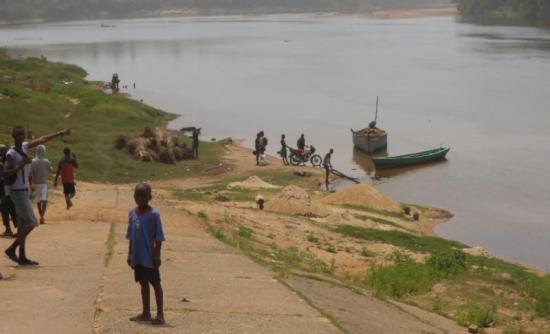UNICEF CONNECT blogs.unicef.org April 15, 2015
by Margaret James, a Health Officer with UNICEF, Sierre Leone
When I first heard in February that Lugbu chiefdom was one of the few in Bo District, Sierra Leone, that had not recorded a single case of Ebola, my interest was immediately triggered. On 2 March 2015 we got to visit the chiefdom’s main town, Sumbuya, for several hours of meetings with local leaders, youth, a traditional healer and business people to find out more.
 Lugbu chiefdom has several entry points and can be accessed by both land and water. (c)UNICEF Sierra Leone
Lugbu chiefdom has several entry points and can be accessed by both land and water. (c)UNICEF Sierra Leone
In our quest for answers, we got permission from the local Paramount Chief, (PC) Mohamed Allie Nallo, who gave his blessing and got in touch with key people to help us in our research. We held group meetings, one-on-one interviews and even carried out spot visits.
Recent Comments